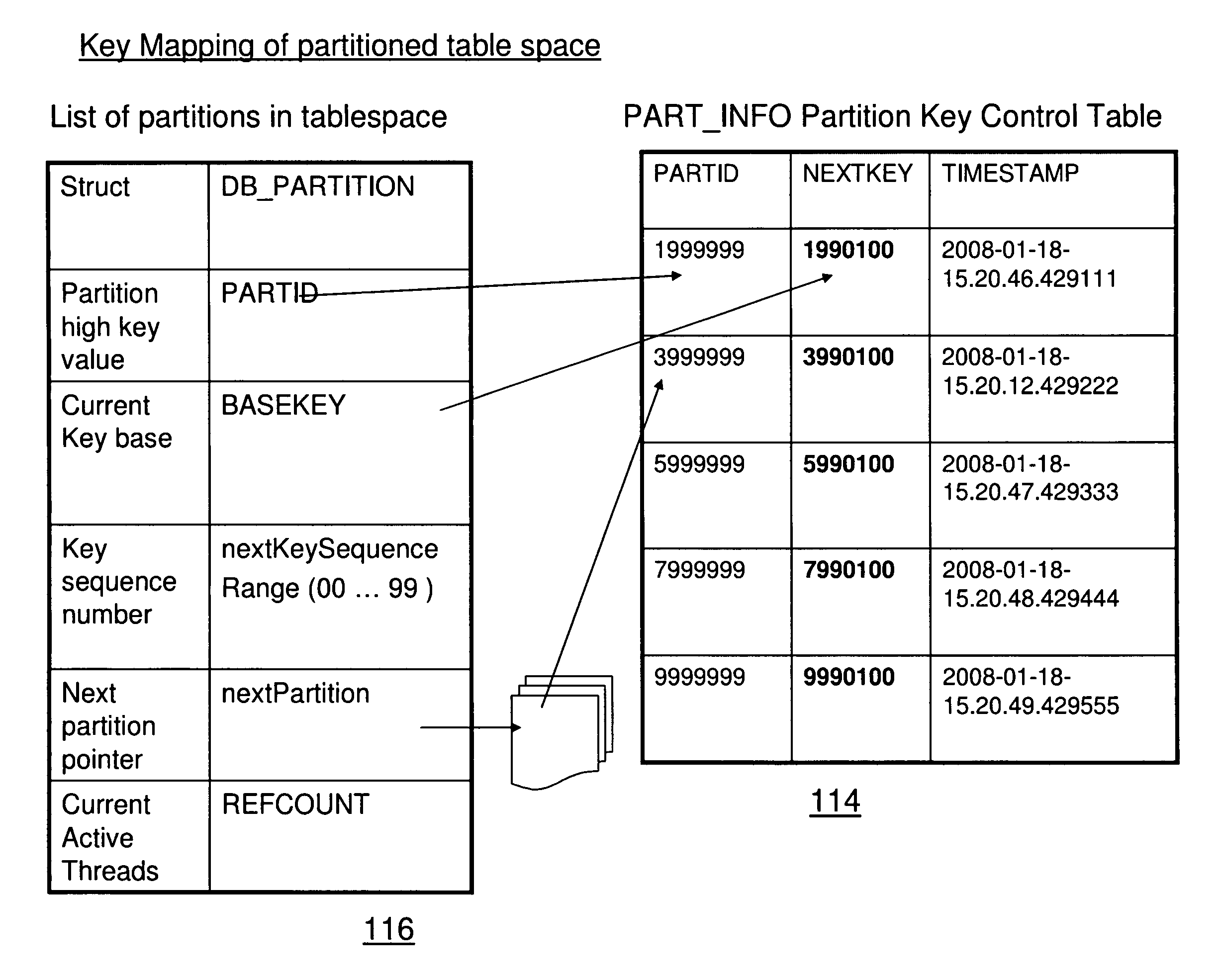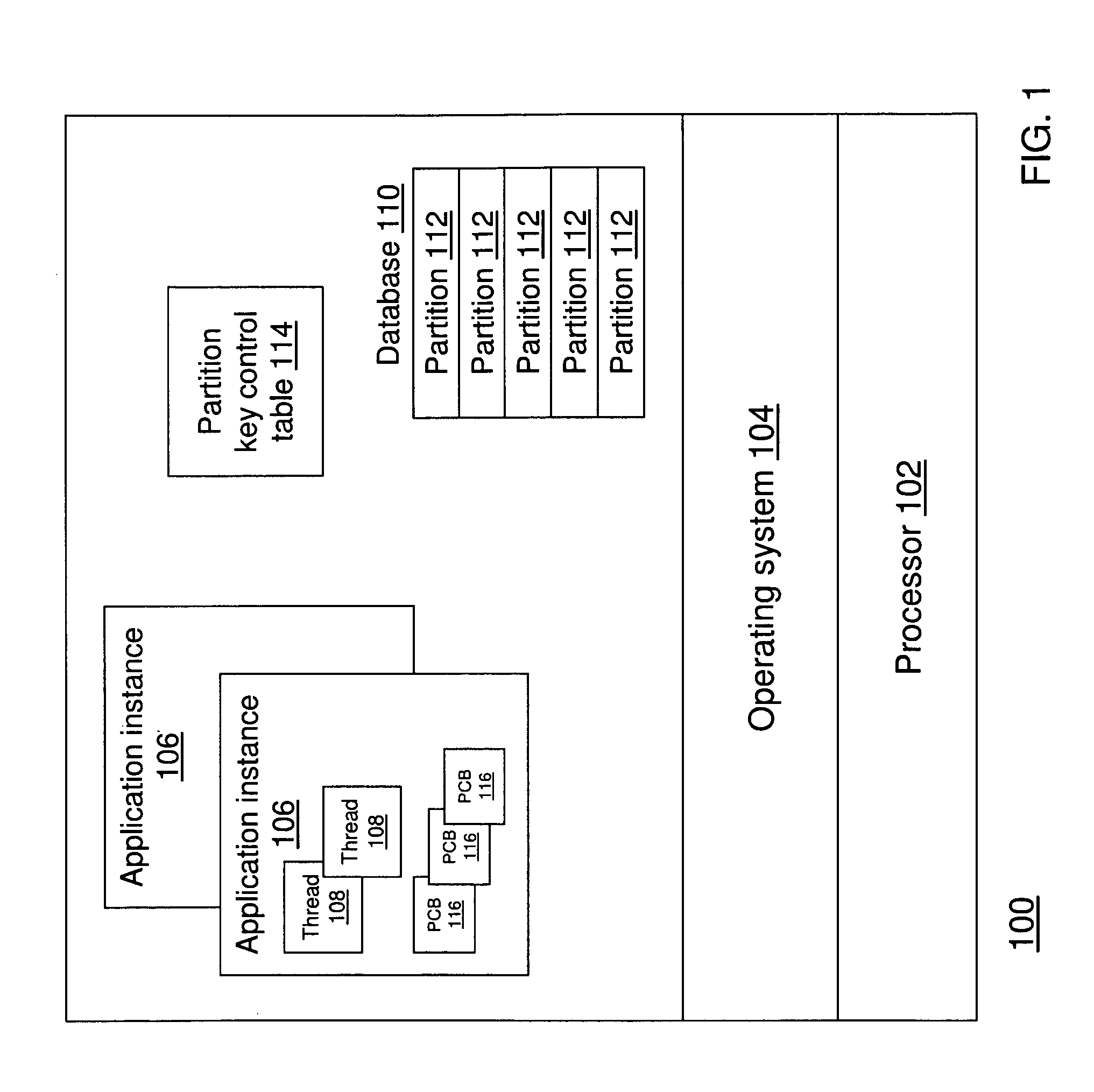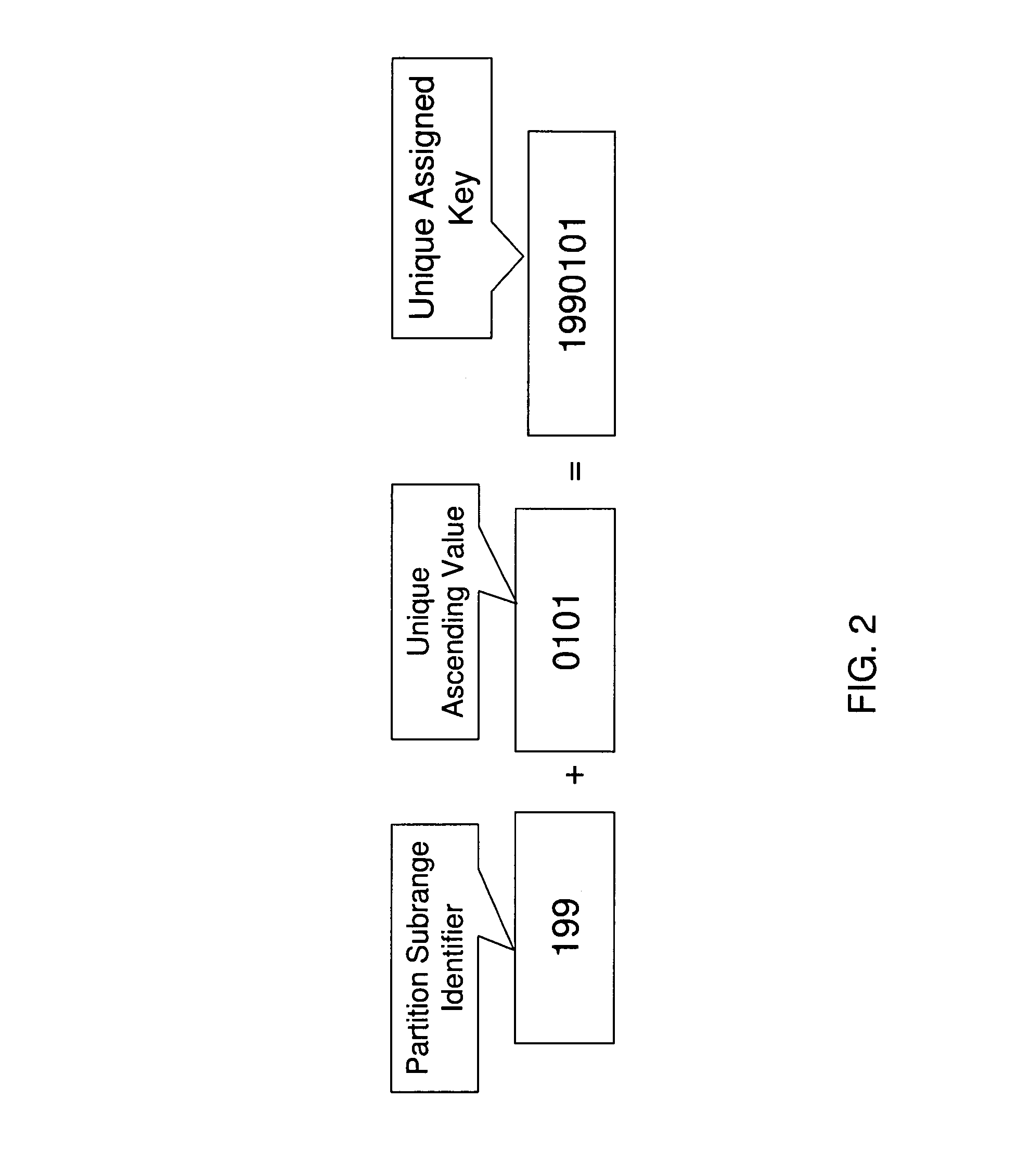Method and apparatus for generating partitioning keys for a range-partitioned database
a database and key generation technology, applied in the field of methods, can solve the problems of contention between competing threads, data is not immediately spread across partitions, and the formation of “hotspots” in the database, and achieve the effect of maximizing the efficiency of inserting
- Summary
- Abstract
- Description
- Claims
- Application Information
AI Technical Summary
Benefits of technology
Problems solved by technology
Method used
Image
Examples
Embodiment Construction
[0034]This invention pertains to range-partitioned databases where an application generates the partitioning key for newly inserted data. Techniques are described whereby the generated key can be constructed and managed in such a way as to achieve benefits similar to those of previously used approaches while overcoming some of the weaknesses of those approaches. The techniques within this invention allow the application to achieve the following goals:[0035]1. Keeping newly inserted data organized in key sequence to avoid the need for frequent maintenance activity to reorganize the data.[0036]2. Inserting new data at the end of previously existing data in each partition, as this placement of new data is customarily the most efficient.[0037]3. Continuously spreading new data uniformly across the partitions.[0038]4. Maximizing the isolation of inserts from concurrent threads into different partitions, including the case where concurrent threads are executing in multiple instances of th...
PUM
 Login to View More
Login to View More Abstract
Description
Claims
Application Information
 Login to View More
Login to View More - R&D
- Intellectual Property
- Life Sciences
- Materials
- Tech Scout
- Unparalleled Data Quality
- Higher Quality Content
- 60% Fewer Hallucinations
Browse by: Latest US Patents, China's latest patents, Technical Efficacy Thesaurus, Application Domain, Technology Topic, Popular Technical Reports.
© 2025 PatSnap. All rights reserved.Legal|Privacy policy|Modern Slavery Act Transparency Statement|Sitemap|About US| Contact US: help@patsnap.com



